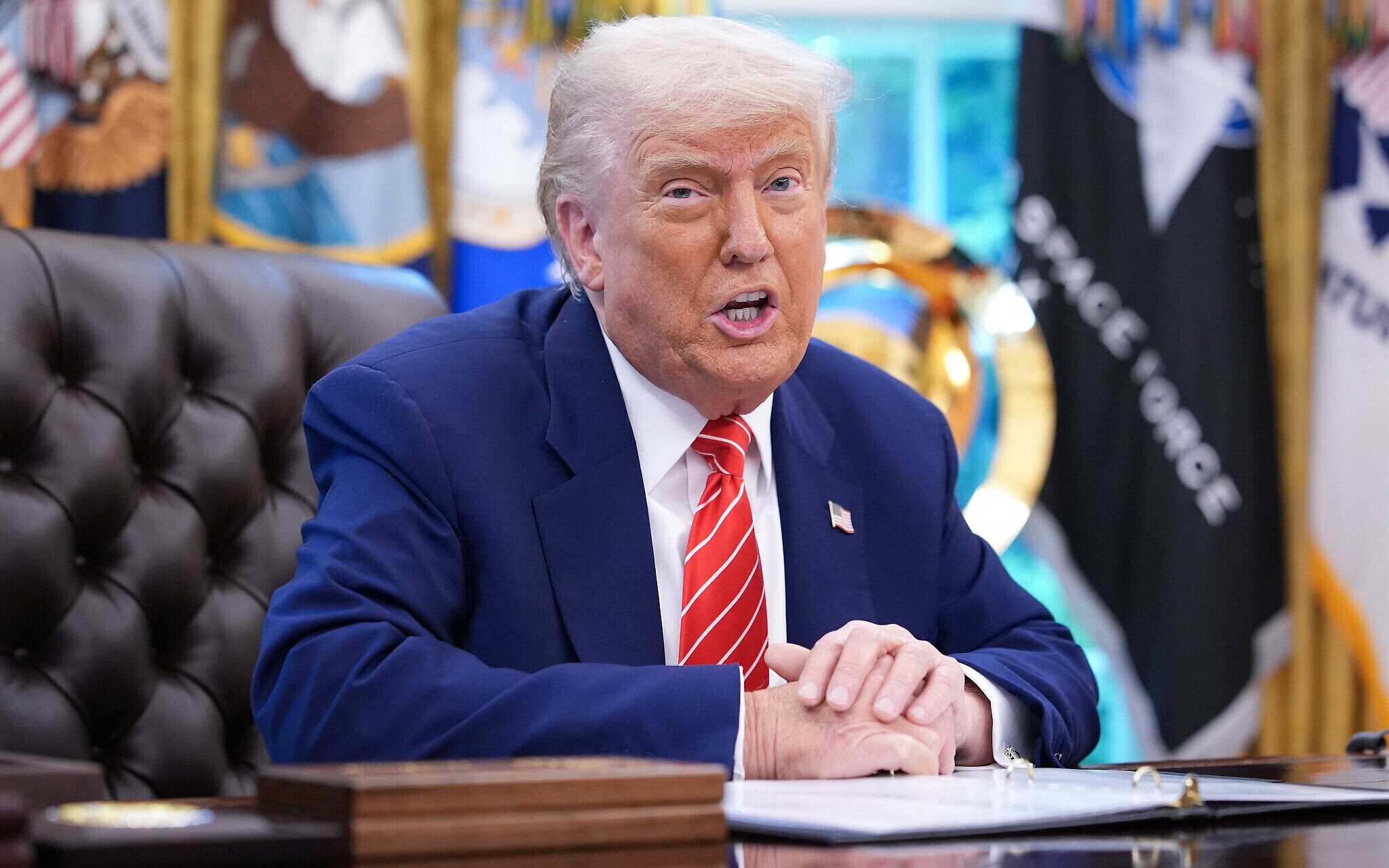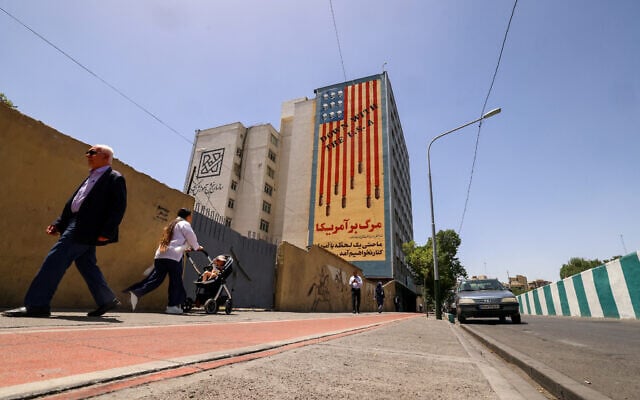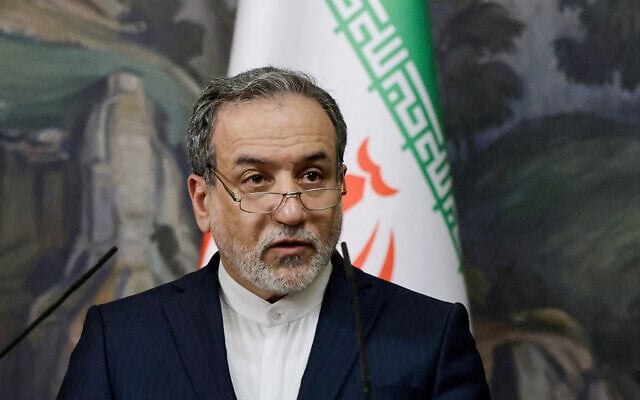



US President Donald Trump on Friday reiterated his belief that Washington was “fairly close” to reaching a nuclear deal with Iran.
“I think we have a chance of making a deal with Iran,” Trump told reporters in the Oval Office.
“They don’t want to be blown up. They would rather make a deal, and I think that could happen in the not-too-distant future,” he continued, adding that Iran cannot have a nuclear weapon.
Iranian officials said Trump’s threat to destroy the nation’s nuclear facilities was a clear red line and would have severe consequences.
“If the US seeks a diplomatic solution, it must abandon the language of threats and sanctions,” an unnamed Iranian official told the Fars news agency, adding that such threats “are open hostility against Iran’s national interests.”
Trump told reporters on Wednesday at the White House: “I want [the nuclear agreement] very strong, where we can go in with inspectors, we can take whatever we want, we can blow up whatever we want, but nobody getting killed. We can blow up a lab, but nobody is gonna be in a lab, as opposed to everybody being in the lab and blowing it up.”
Trump has repeatedly threatened to bomb Iran’s nuclear facilities if diplomacy fails to resolve a decades-long dispute over Tehran’s nuclear program.
Meanwhile on Friday, Iran summoned Austria’s charge d’affaires after it branded as “fake” an Austrian intelligence report that said Tehran is seeking to acquire atomic weapons.
In its annual report on global threats, Austria’s domestic intelligence service (DSN) said Monday that Iran’s “nuclear weapons development program is well advanced.”
The United States, Israel and other Western countries have repeatedly accused Iran of seeking to acquire a nuclear weapon.
Iran has categorically denied the claims, instead arguing that it is pursuing a nuclear program for civilian purposes alone. According to the International Atomic Energy Agency (IAEA), however, Iran is the only country in the world that enriches uranium up to 60 percent. That rate is still below the 90 percent threshold required for a nuclear weapon, but far above the 3.67 percent limit set under a 2015 agreement with world powers.
“All efforts to prevent Iran’s armament through sanctions and agreements have so far proved ineffective,” the Austrian report said.
Iran’s foreign ministry condemned “the fake information” disseminated in the report and demanded an explanation from Austria’s government.
Reuters reported Friday that Saudi Arabia’s defense minister delivered a blunt message to Iranian officials in Tehran last month: take Trump’s offer to negotiate a nuclear agreement seriously because it presents a way to avoid the risk of war with Israel.
Alarmed at the prospect of further instability in the region, Saudi Arabia’s 89-year-old King Salman bin Abdulaziz dispatched his son, Prince Khalid bin Salman, with the warning destined for Iran’s Supreme Leader Ayatollah Ali Khamenei, according to two Gulf sources close to government circles and two Iranian officials.
Present at the closed-door meeting in Tehran, which took place on April 17 in the presidential compound, were Iranian President Masoud Pezeshkian, armed forces Chief of Staff Mohammad Bagheri and Foreign Minister Abbas Araqchi, the sources said.
While media covered the 37-year-old prince’s visit, the content of King Salman’s covert message had not been previously reported.
Prince Khalid, who was Saudi ambassador to Washington during Trump’s first term, warned Iranian officials that the US leader has little patience for drawn-out negotiations, according to the four sources.
Trump had unexpectedly announced just over a week earlier that direct talks were taking place with Tehran, aimed at curbing Iran’s nuclear program in return for sanctions relief. He did so in the presence of Israeli Prime Minister Benjamin Netanyahu, who had traveled to Washington hoping instead to win support for attacks on Iranian nuclear sites.
In Tehran, Prince Khalid told the group of senior Iranian officials that Trump’s team would want to reach a deal quickly, and the window for diplomacy would close fast, according to the four sources.


